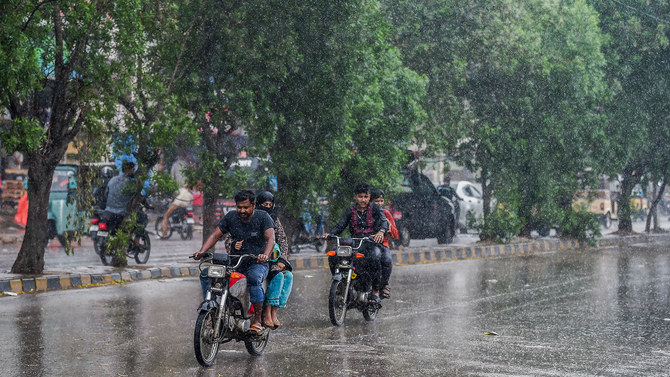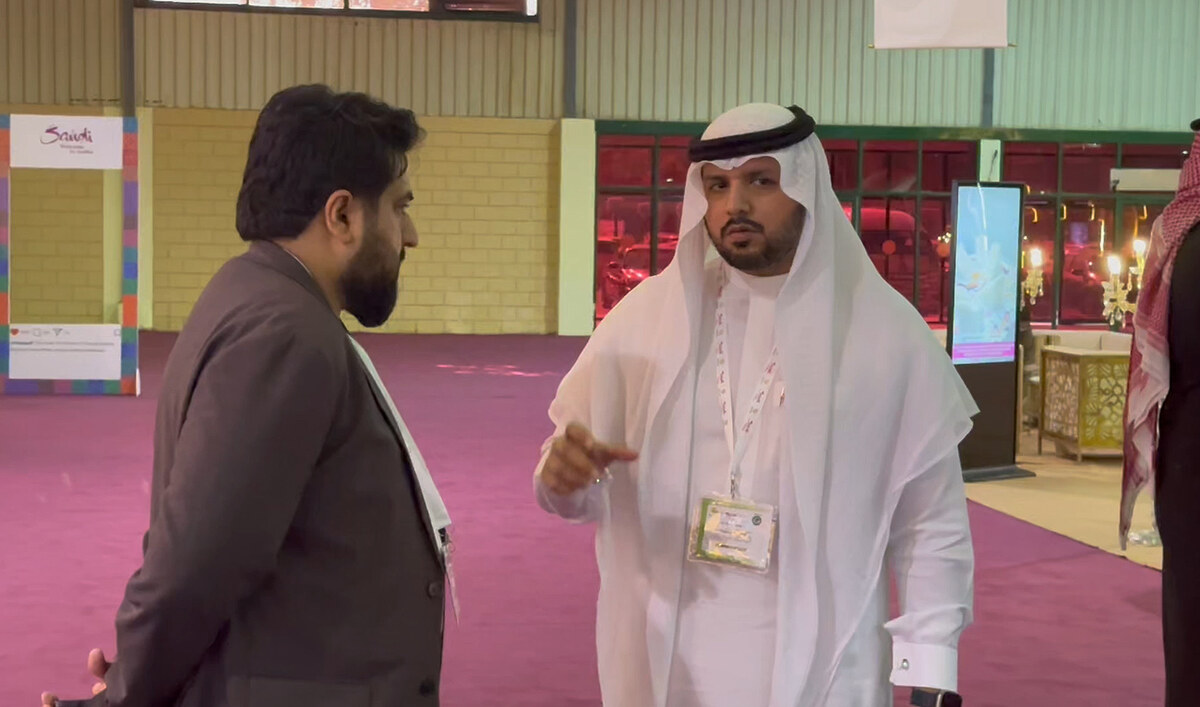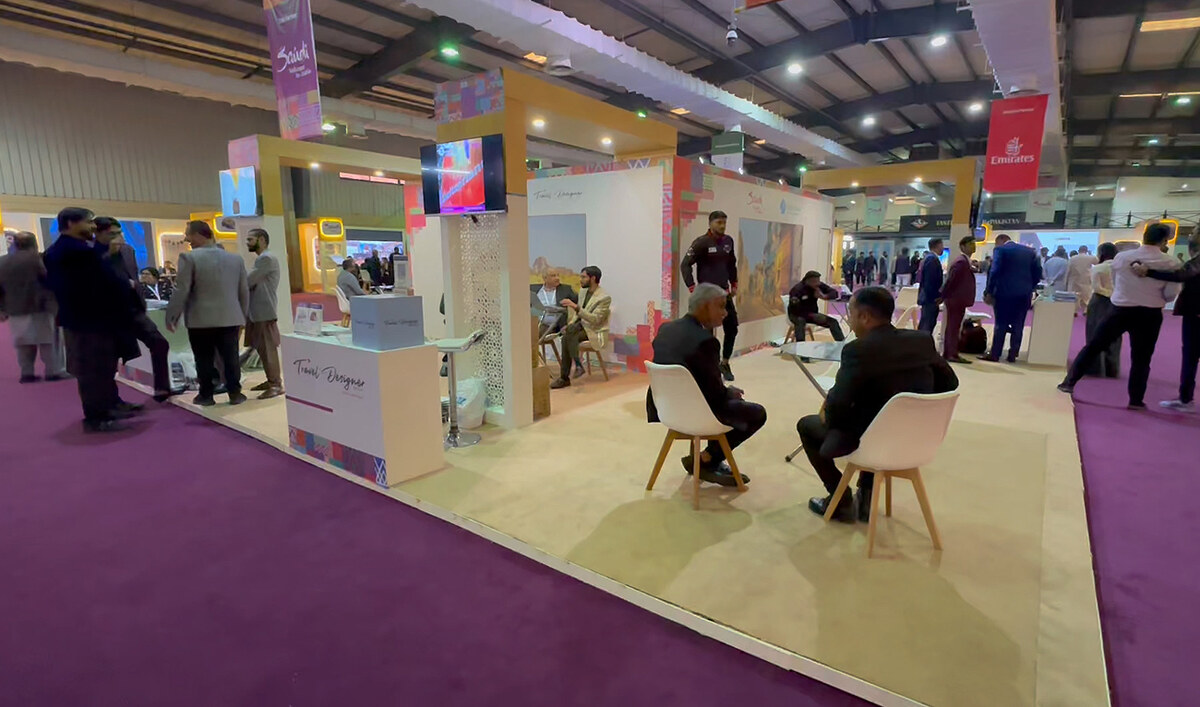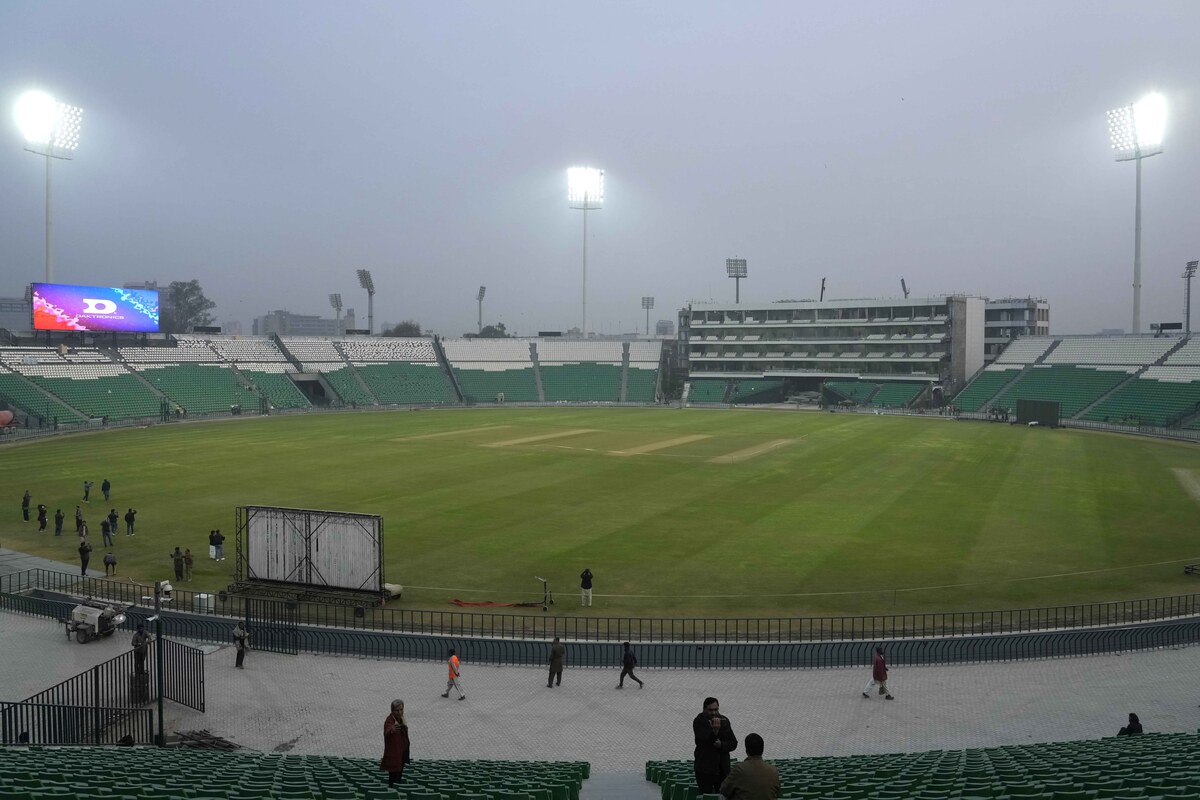ISLAMABAD: The provincial disaster management authority in Pakistan’s Khyber Pakhtunkhwa province issued safety guidelines on Wednesday ahead of pre-monsoon rains expected during the Eid holidays, after at least 25 people were killed in rain-related accidents earlier this month.
On June 22, the Pakistan Meteorological Department said heavy showers could lead to urban flooding and landslides in the central and upper parts of the country during Eid Al-Adha, which falls on Thursday in Pakistan.
“In view of the more pre-monsoon rains during the Eid holidays, guidelines have been issued for the concerned institutions and district administration,” a notification from the KP Provincial Disaster Management Authority (PDMA) said on Wednesday.
“To avoid rain-related accidents, people should avoid standing near electric or telephone poles (pylons) during thunderstorms and stay away from seasonal drains (dry streams), bridges, and drainage canals. They should not attempt to cross them during the rain.”
The notification cautioned people to avoid using or crossing roads with high flow of water and advised travelers and tourists planning trips to the country’s north to be mindful of the country’s weather advisory.
“The district administration should share the information of untoward incidents with all concerned institutions in a timely manner, while the civil defense and rescue services (Rescue 1122 and fire brigade) should be on alert,” the notification said, adding that authorities concerned should ensure the availability of emergency response personnel and equipment during the forecast and issue warnings to people living near landslide-prone areas to take extra precautions.
The notification also advised residents and authorities to dispose of the offal of sacrificial animals in properly designated areas so drainage systems would not get blocked.
Heavy monsoon rains caused devastating flash floods across Pakistan last year, killing at least 1,700 people, displacing millions, and causing damages worth $30 billion, according to government estimates.





















